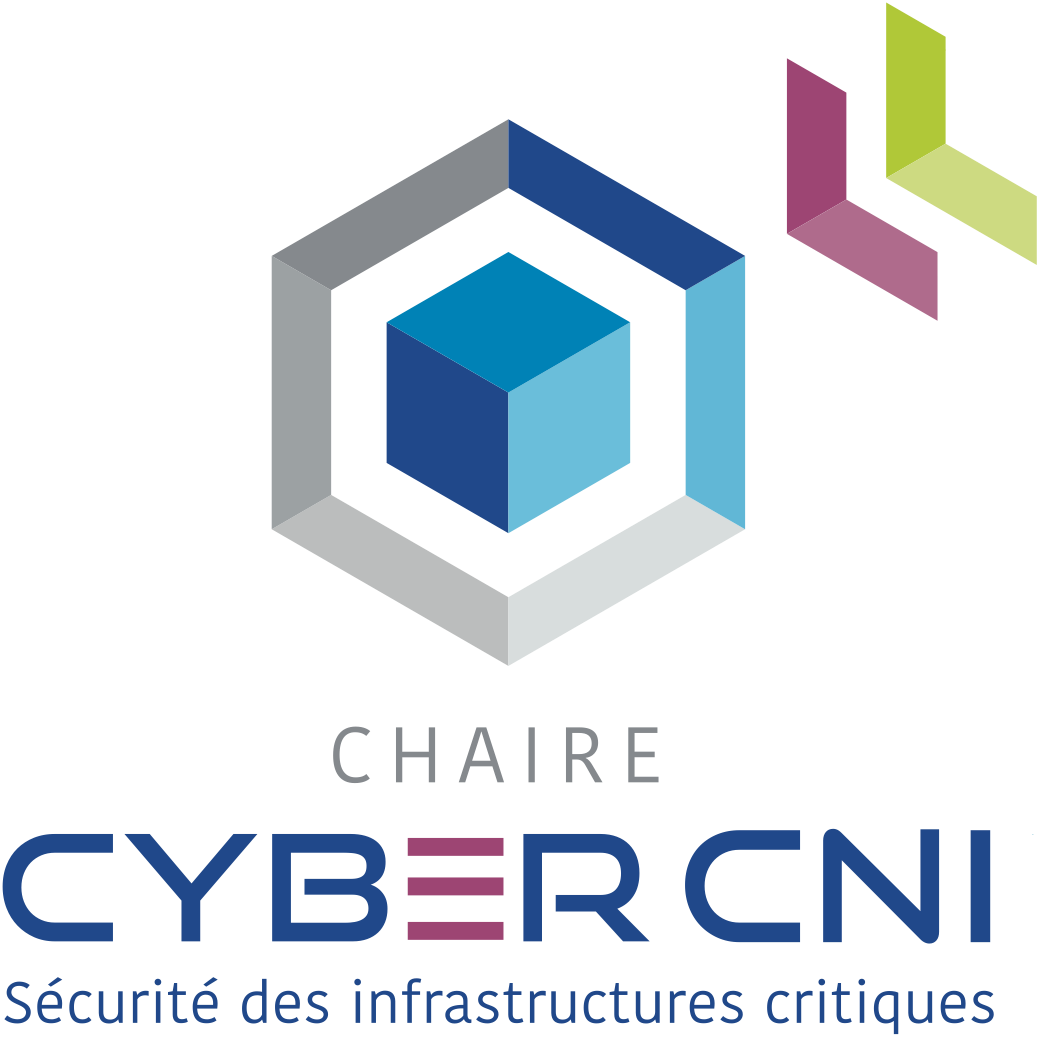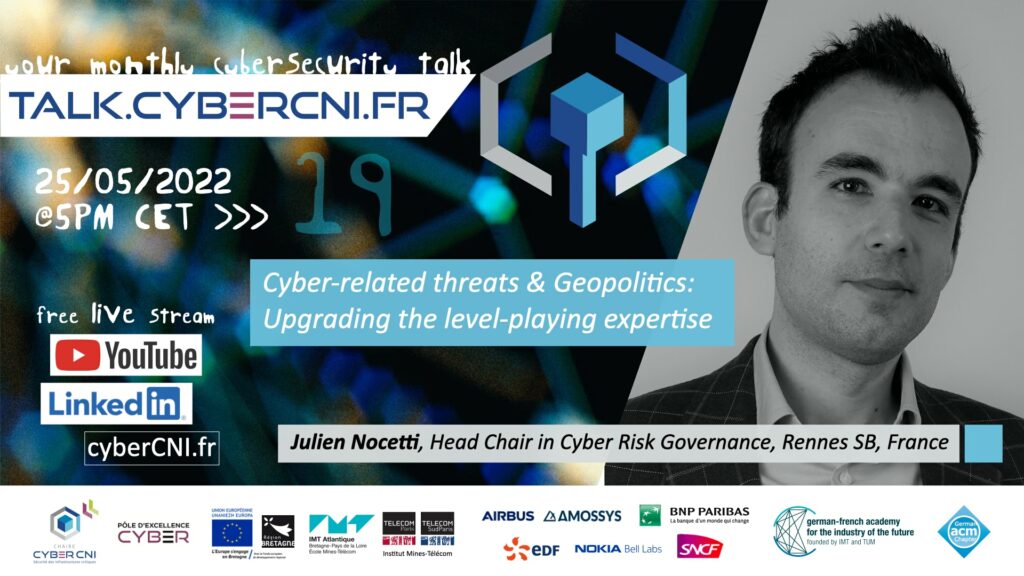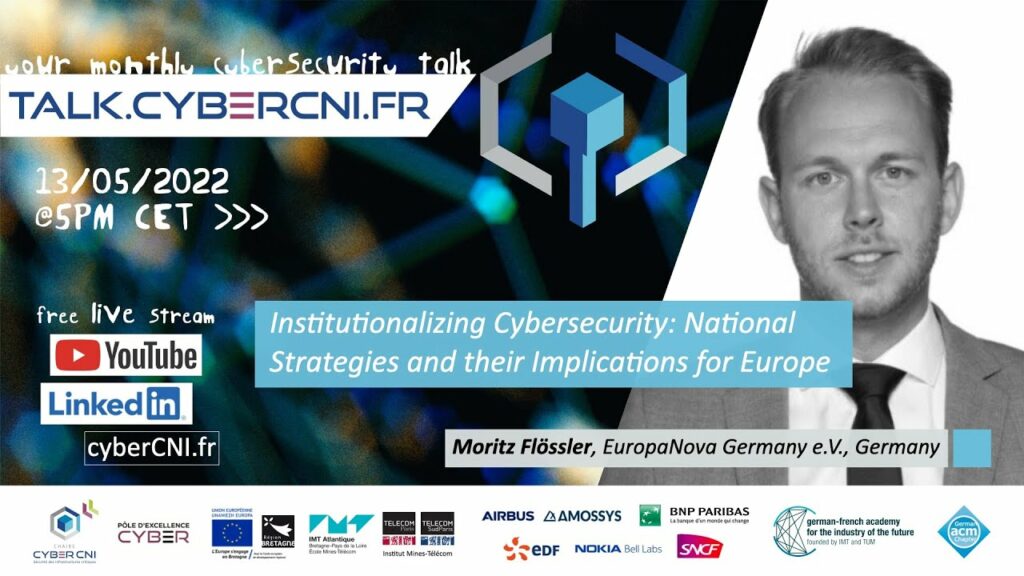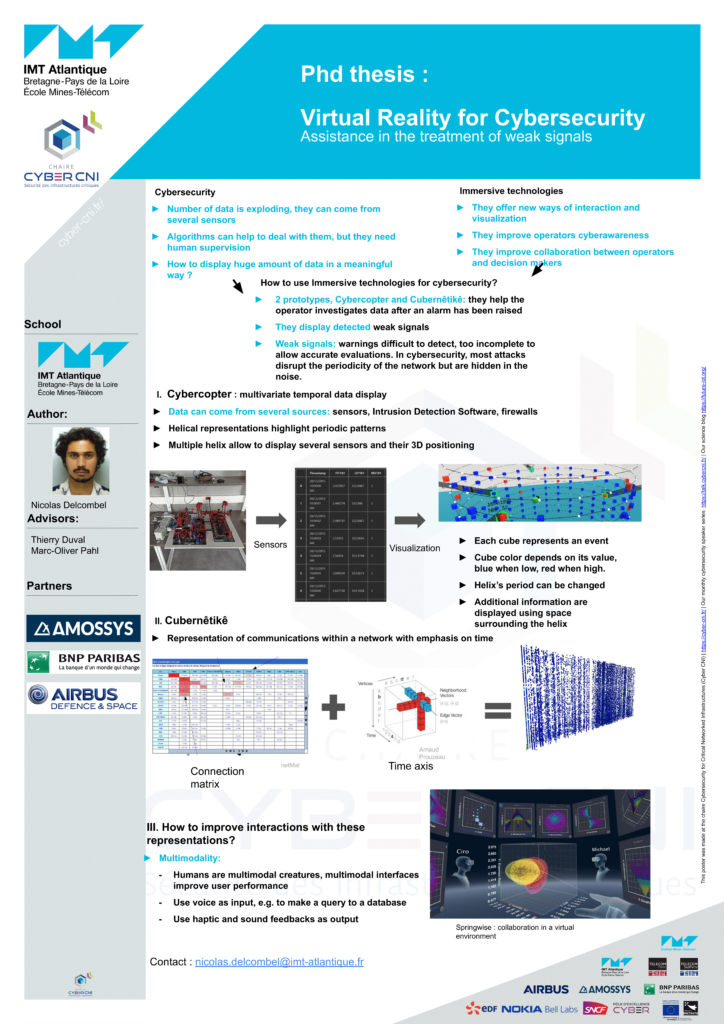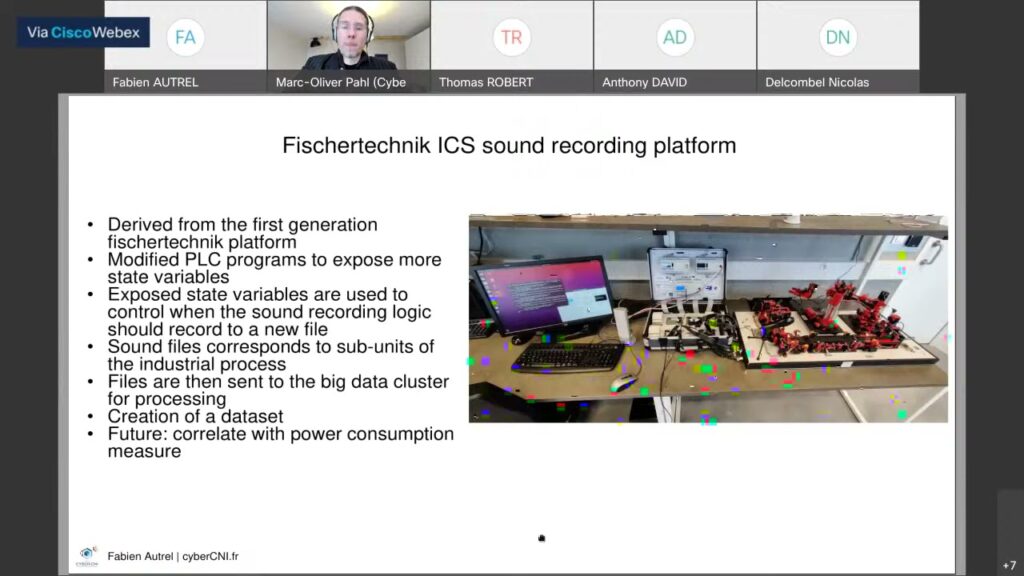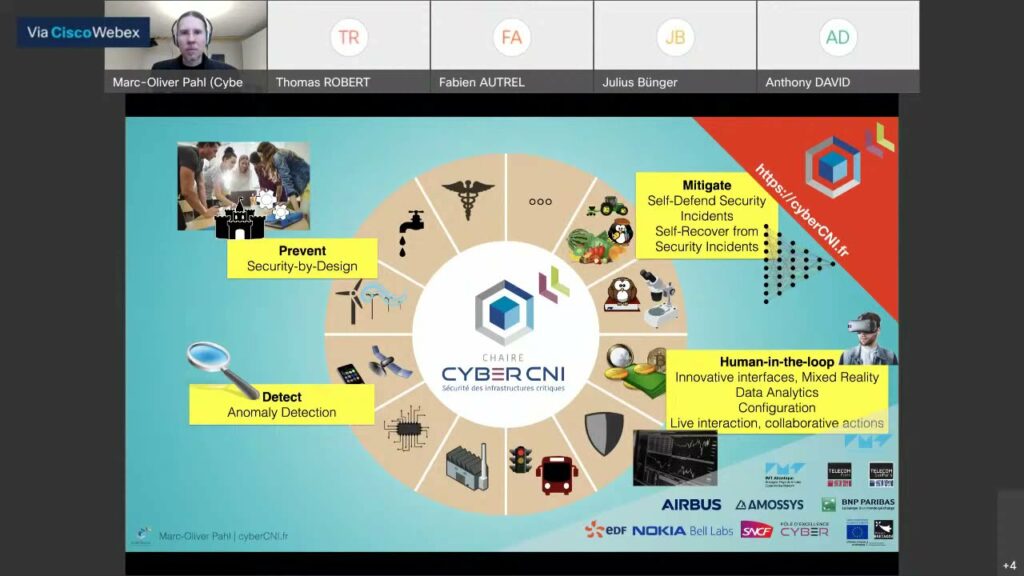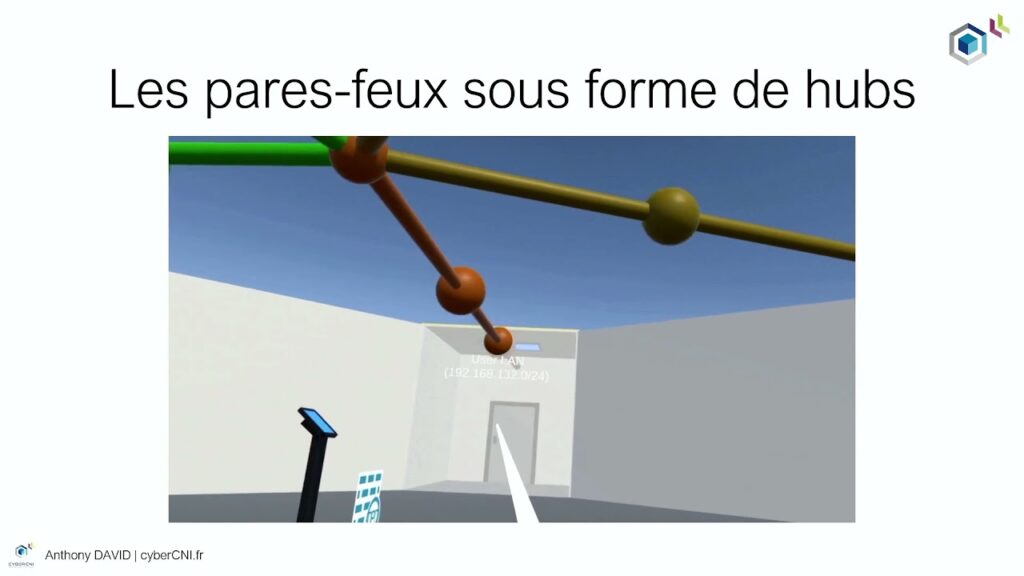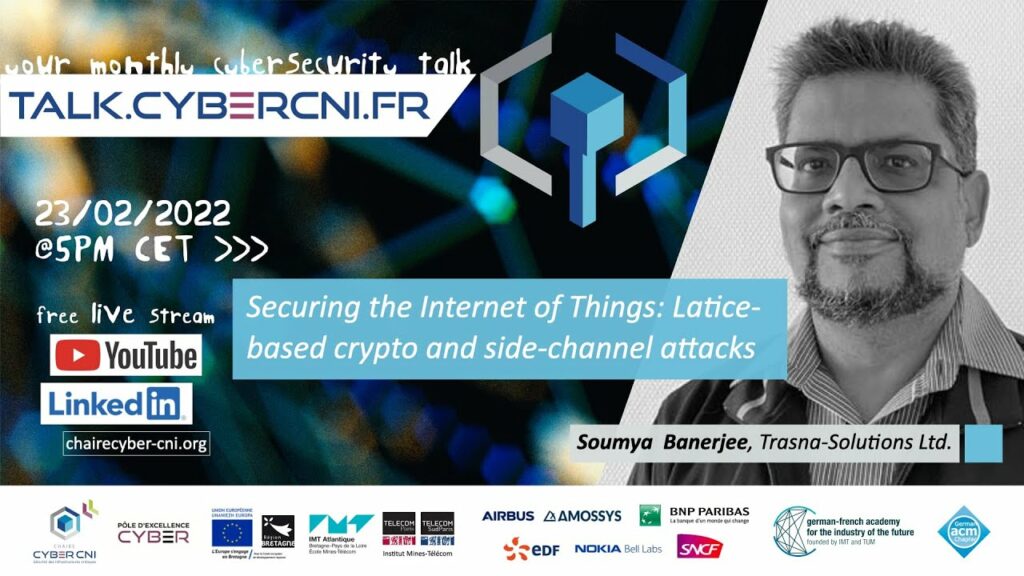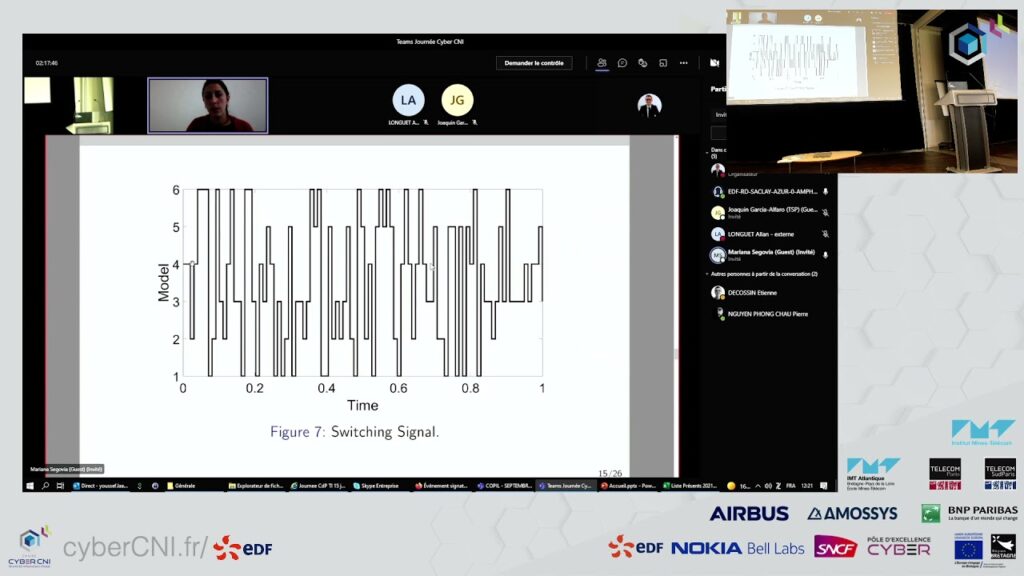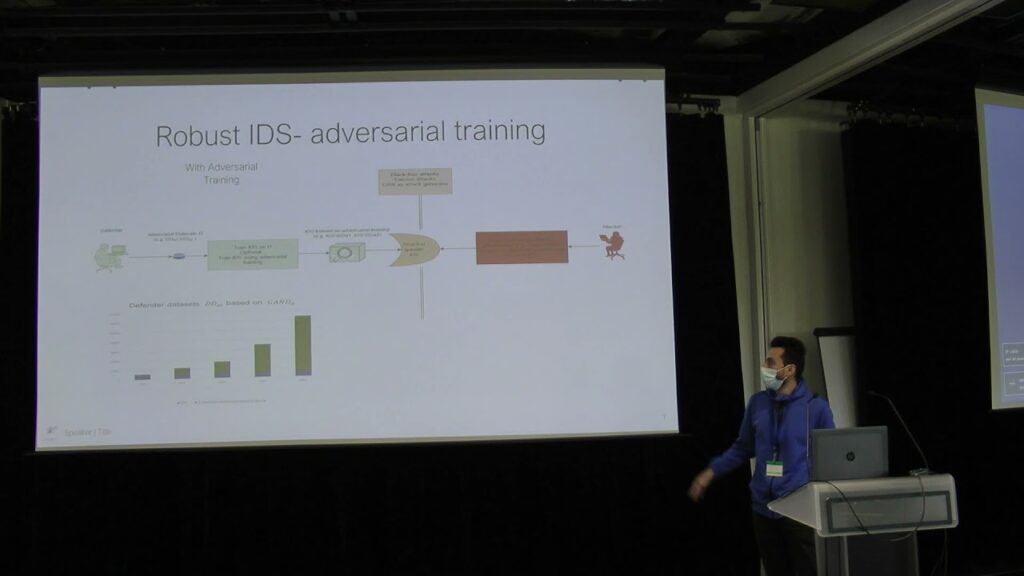You are cordially invited to join the free live stream on youtube and LinkedIn! To register and subscribe to the series announcements, just enter your mail address in the box on the left at https://talk.cybercni.fr/. Please share the link https://talk.cybercni.fr/19 with your interested friends!
On Fri, May 13, 2022, 5pm CET I Moritz Flößler (EuropaNova Germany e.V., Germany), will talk about “Institutionalizing Cybersecurity: National Strategies and their Implications for Europe“.
Watch the trailer here: https://youtu.be/7fzsRQgmqTs?list=PLdftPKA9mTfaDJxqwexil2mPhUFIA9ITd
Please share the link https://talk.cybercni.fr/18 with your interested friends!
At the occasion of the IMT symposium on “Crisis Management and Digital Technologies: new Threats and new Solutions”, our PhD student Nicolas Delcombel presented his poster on his PhD: “Virtual Reality for cybersecurity”.
On Wed, Apr 27, 2022, 5pm CET I Cora Perner (Airbus, Germany), will talk about “Security for ground and air vehicles“. Watch the trailer here: https://youtu.be/u_v4cjm42qU?list=PLdftPKA9mTfaDJxqwexil2mPhUFIA9ITd Please share the link https://talk.cybercni.fr/2022-04 with your interested friends!
The cyberCNI.fr (https://cyberCNI.fr/) Research Update (Spring/ Fall) happens once per semester. It is the big status event of the chair Cyber CNI. All works around the chair are presenting their progress, current works, and next challenges. In this talk, our research engineer Fabien Autrel presents how we improved our testbed based on Fischertechnik and CyberRange technologies.
The cyberCNI.fr (https://cyberCNI.fr/) Research Update (Spring/ Fall) happens once per semester. It is the big status event of the chair Cyber CNI. All works around the chair are presenting their progress, current works, and next challenges. The year 2021 was rich of activities. In this talk, our chairholder Marc-Oliver Pahl presents an overview of the most important activities of the year. The perfect possibility to catch up with the ecosystem of the chaire Cyber CNI.
On Sep 21, 2021, we had the pleasure to visit our partner EDF in Paris Palaiseau. Today, Nicolas and Anthony present their work on virtual reality for cybersecurity.
On Feb 23, 2021, 5pm CET I Soumya Banerjee (TRASNA), will talk about “Securing the Internet of Things: Latice-based crypto and side-channel attacks“. Watch the trailer here: https://youtu.be/fPpLk3BpQjY?list=PLdftPKA9mTfaDJxqwexil2mPhUFIA9ITd
You are cordially invited to join the free live stream on youtube and LinkedIn! To register and subscribe to the series announcements, just enter your mail address in the box on the left at https://talk.cybercni.fr/. Please share the link https://talk.cybercni.fr/2022-02 with your interested friends!
On Sep 21, 2021, we had the pleasure to visit our partner EDF in Paris Palaiseau. Today, Mariana present her work. In her talk, she will explain how to make control of cyber-physical systems resilent, using switched linear control system.
On Sep 21, 2021, we had the pleasure to visit our partner EDF in Paris Palaiseau! Here is another highlight presentation:
Hassan CHAITOU, Security risk optimization for learning on heterogeneous quality data
A classifier is a component used in the automation of “decision-making” or complex data abstraction: intruder detection, speed limitation extraction. For an efficient classifier, the training must be on a large volume of data and be renewed over time by integrating or revoking certain learning data. From a security point of view, this process represents a risk since it offers the attacker various ways of degrading classifier performance (either by forcing classifications mischievous, either by randomly degrading its performance). These two types of attacks require more or less effort from the attacker.
This risk is exacerbated when data comes from sources (network equipment, organizations) corresponding to heterogeneous trust levels. Hassan’s thesis aims at controlling the risk associated with this update via game theory in the case where the confidence in the learning data is not homogeneous.
